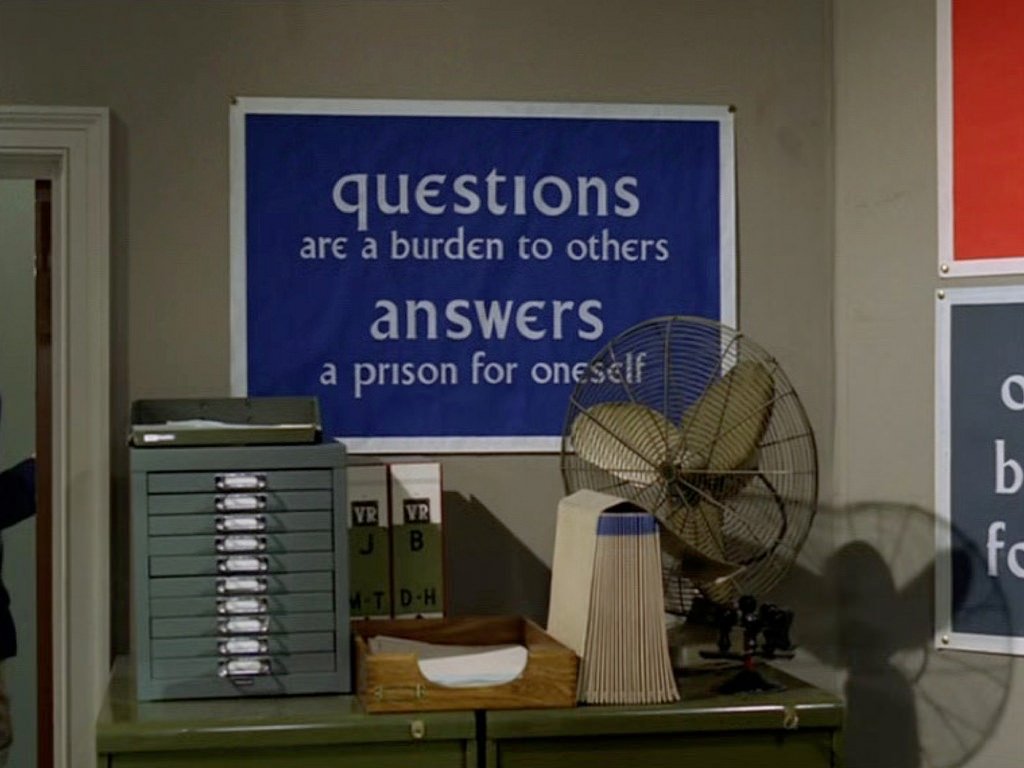For ~20yrs, I’ve participated in pedagogical research on how to effectively assess student learning.
ProTip:
It’s impossible to block all forms of cheating, but it’s impossible to cheat on a good assessment.
Passing by elimination & luck.
Passing by brute memorization or regurgitation without comprehension.
Answers revealed by question grammar.
Inherent assumptions confounding what’s actually tested.
Misaligned objectives.
So. many. ways.
Why?
Because I wanted it to be a Good Test where they walked away feeling like they showed me what they learned. A good test leaves you proud (or at least content it’s an accurate reflection), not frustrated.
They’re usually a test of short-term memory & handwriting speed.
Oops.
Any “let me Google that for you” question is bad.
Anything tightly time-constrained is testing how fast students think, not what they know.
Anything that repeats between students isn’t taking adequate advantage of the technology.
So how can you cheat?
A: ...your learning platform sux & should be ashamed of itself.
Q: Formatting errors?
A: ...your learning platform sux etc.
Q: But I give students a second chance!
A: Good practice! Unless it’s elimination & luck.
Hint: This should be your objective.
Q: But I grade on a curve!
A: Then you‘ve got unclear learning outcomes, are crap at teaching, or are an evil jackass. Fix it.
What even is the purpose of an exam?
What EXACTLY are you assessing? How do you assess that, and ONLY that?
It takes a lot of thinking to write a good exam.
Novices need scaffolding to become experts. You need to TELL students what you want to learn so they can fit pieces together.
Aside: Objectives also make class prep so much easier.
Good objectives are specific, concise, & measurable, with each containing behavior, conditions, & criteria.
More info: blogs.ubc.ca/lled3602015/fi…
Note none of the suggested verb stems are “Memorize.”
Note how many verb stems require critical thinking that you can’t cheat around by asking google or sneaking a peek at notes.
So why not harness that?
Give them a structured study guide skeleton (intro) or flat-out open note (advanced). They’ll learn SO MUCH during prep.
Bonus: Accurately reflects real-world conditions.
How?
Hint: Best way to learn is to teach.
Try running group exams after individual exams. They’ll catch each other’s misconceptions & provide immediate feedback.
Here’s how assessment plays out:
Challenge: International pop makes it easy to accidentally test English fluency.
Challenge: Little-to-no STEM in majors/professions alters fundamental point of class into more “appreciation” than “execution”
Exam: study guide skeleton + questions on practice of science
Challenge: Enormous class size
Challenge: Must consistently fulfill professional licensing requirements
Exams: Closed-note multiple choice (sigh) drawn directly from objectives. Individual exams immediately followed by group exams.
A: Is every question drawn from the learning objectives?
Analyze how your students get questions wrong. Patterns may indicate common misconceptions or poor phrasing. Their performance is partially a test of your teaching.
I’ve failed & aced tests.
I was only frustrated with grades that didn’t reflect what I learned.
A: Maybe, or it could mean you’re a kick-ass teacher with awesomely motivated students.
Pre-test/post-test pairs will give you insight into what students walk in already knowing vs what they learn from class.
A: It’s ok. None of us do.
Simple ideas can be really hard. Try something, analyze, iterate, & improve. Even if it’s just “less bad.” Teaching is a work in progress.












